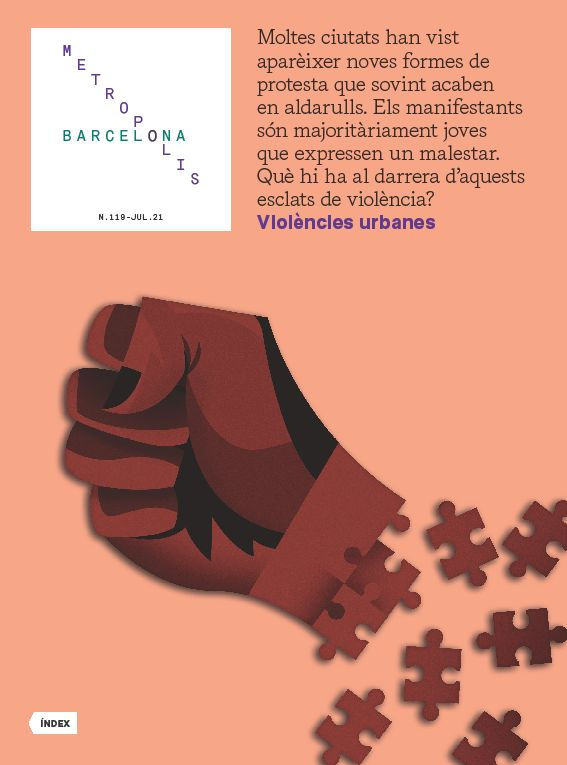Recognising and managing conflicts

In recent years, we have witnessed the emergence of new forms of protest that have often spiralled into street violence. They are different types of outbursts that have ended in riots, clashes with the police and the destruction of street furniture. Barcelona has been the scene of this form of urban violence of late, just like cities such as Genoa, Seattle, Prague, Paris, London, Burgos and Stockholm have been before.
Behind these sudden protests, of a highly expressive nature and with a very strong media component, are movements that fight for longstanding causes such as the independence of Catalonia, anti-Fascism or freedom of expression, but also new social groups that act spontaneously driven by anger or angst that pushes them to use confrontation as a means to demand attention and to shake the established order.
There is no violence without cause, although it is sometimes hard to identify that cause. Underlying these demonstrations are various reasons and different ways of expressing anger, but often a latent malaise comes to the surface related to growing inequalities, the collapse of the welfare state and changes in the economic and employment landscape that leave a significant proportion of the population exposed. The leading players are usually young people. However, this is not always the case, as seen in the Yellow Vests movement in France, where people of all ages took part who would have never imagined themselves confronting the police. Seeing that some young people have assimilated the belief that they aren’t afforded much attention without resorting to violence should stir us to think carefully about the effectiveness of today’s mechanisms of democratic participation.
More than just a challenge to the established order, we must consider these protests to be a symptom of social unrest and conflicts that need to be managed. The city brings together conflicting desires and interests in the same arena, and it is often also the place where the contradictions of the future are managed and envisaged. Conflict is not necessarily negative, but it must be channelled properly and, above all, it must be prevented from being expressed violently. Violence cannot be trivialised or justified by any means, but protesting must not be criminalised either. An effective security policy is one that addresses the roots of the conflict and directs its management towards strengthening social cohesion and citizen participation.
The newsletter
Subscribe to our newsletter to keep up to date with Barcelona Metròpolis' new developments




